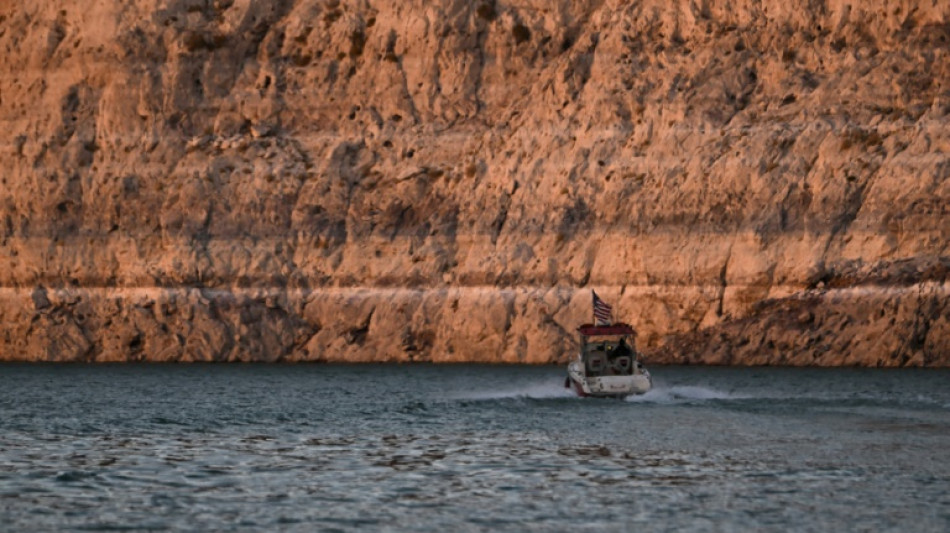
-
 Former Olympic champion Sharpe suffers heavy halfpipe crash
Former Olympic champion Sharpe suffers heavy halfpipe crash
-
Belarus says US failed to issue visas for 'Board of Peace' meeting

-
 Forest boss Pereira makes perfect start with Fenerbahce rout in Europa play-offs
Forest boss Pereira makes perfect start with Fenerbahce rout in Europa play-offs
-
Alcaraz fights back to book last four berth in Qatar

-
 England captain Itoje warns of 'corrosive' social media after abuse of Ireland's Edogbo
England captain Itoje warns of 'corrosive' social media after abuse of Ireland's Edogbo
-
War-weary Sudanese celebrate as Ramadan returns to Khartoum

-
 Townsend expects recalled Scotland duo to shine in Six Nations clash with Wales
Townsend expects recalled Scotland duo to shine in Six Nations clash with Wales
-
Peru's new president under fire for child sex comments

-
 UK king opens London fashion week despite brother's arrest
UK king opens London fashion week despite brother's arrest
-
Belarus frees opposition politician Statkevich

-
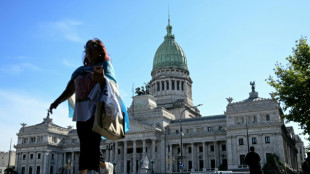 Striking Argentine workers slow down Buenos Aires in protest over labor reforms
Striking Argentine workers slow down Buenos Aires in protest over labor reforms
-
Starlink loss a blow to Russian forces in Ukraine: experts
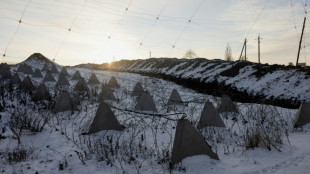
-
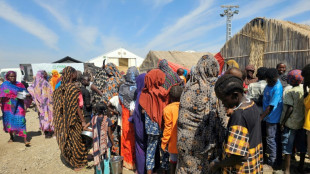 UN's Sudan probe finds 'hallmarks of genocide' in El-Fasher
UN's Sudan probe finds 'hallmarks of genocide' in El-Fasher
-
Belarus frees opposition politician Statkevich: wife

-
 Rocket re-entry pollution measured in atmosphere for first time
Rocket re-entry pollution measured in atmosphere for first time
-
Airbus ready to build two new European fighters if countries want

-
 Canada makes push to attract skilled migrants, including for defence
Canada makes push to attract skilled migrants, including for defence
-
US threatens to leave IEA if net zero focus remains
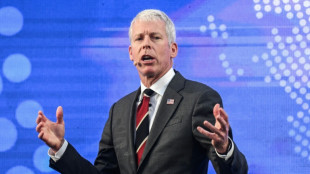
-
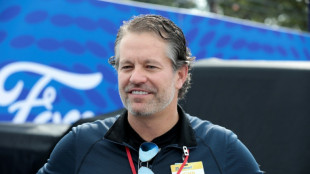 Walmart outlines big AI ambitions as it reports mixed results
Walmart outlines big AI ambitions as it reports mixed results
-
Trump kicks off his 'Board of Peace,' as war clouds loom on Iran

-
 UK pubs to stay open late if home nations reach World Cup knockouts
UK pubs to stay open late if home nations reach World Cup knockouts
-
TotalEnergies in high-stakes French trial over climate change

-
 Bosnia probes fascist salutes at Croatian singer's concert
Bosnia probes fascist salutes at Croatian singer's concert
-
US and Israel issue dire warnings to Iran alongside US military buildup
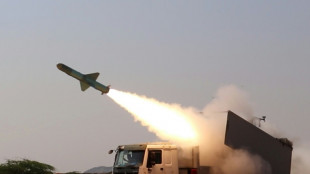
-
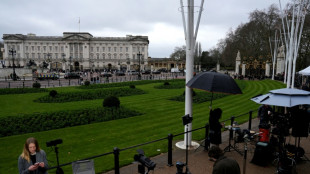 British public cheer Andrew's arrest with a smile and relief
British public cheer Andrew's arrest with a smile and relief
-
Argentine workers go on strike to protest Milei's labor reforms
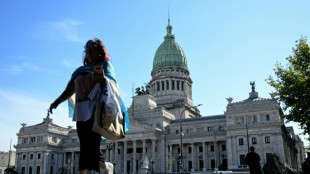
-
 Nakai targets Olympic skating upset as 'skimo' makes debut
Nakai targets Olympic skating upset as 'skimo' makes debut
-
What we know about ex-prince Andrew's friendship with Epstein

-
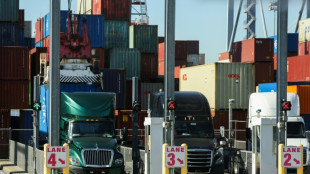 US trade deficit in goods widens to new record in 2025
US trade deficit in goods widens to new record in 2025
-
Oil extends gains on US-Iran tensions, stocks retreat

-
 Williams 'on the back foot' after missing Barcelona: Albon
Williams 'on the back foot' after missing Barcelona: Albon
-
Real Madrid submit evidence to UEFA in Vinicius racism probe

-
 Olympics rev up Milan's renewal but locals fear price to pay
Olympics rev up Milan's renewal but locals fear price to pay
-
Cardona Coll, Fatton win Olympic-debuting ski mountaineering sprint golds

-
 MSF will keep operating in Gaza 'as long as we can': mission head
MSF will keep operating in Gaza 'as long as we can': mission head
-
Russian Filippov wins first medal at Milan-Cortina Games for individual neutral athletes

-
 Italian Milan takes sprint honours at UAE Tour
Italian Milan takes sprint honours at UAE Tour
-
Dozens killed in jihadist attacks in northwest Nigeria

-
 Zimbabwe unbeaten in T20 World Cup after six-wicket Sri Lanka win
Zimbabwe unbeaten in T20 World Cup after six-wicket Sri Lanka win
-
Postecoglou admits taking Nottingham Forest post a 'bad decision'

-
 Switzerland's Fatton wins women's ski mountaineering sprint on Olympic debut
Switzerland's Fatton wins women's ski mountaineering sprint on Olympic debut
-
Kinghorn, Van der Merwe return for Scotland against Six Nations strugglers Wales

-
 Repsol says could boost Venezuela oil output over 50% in 12 months
Repsol says could boost Venezuela oil output over 50% in 12 months
-
UN says Israeli actions raise 'ethnic cleansing' fears in West Bank, Gaza

-
 Arteta tells faltering leaders Arsenal to harness Wolves 'pain' against Spurs
Arteta tells faltering leaders Arsenal to harness Wolves 'pain' against Spurs
-
Crowley gets nod for Irish as Prendergast drops out

-
 Unbeaten Swiss to meet Great Britain in Olympic men's curling semis
Unbeaten Swiss to meet Great Britain in Olympic men's curling semis
-
UK police arrest ex-prince Andrew on suspicion of misconduct

-
 Oil extends gains on US-Iran tensions, Europe stocks slide
Oil extends gains on US-Iran tensions, Europe stocks slide
-
Former prince Andrew, a historic downfall


Deadpool: US mega drought spells trouble at Hoover Dam
Millions of gallons of Colorado River water hurtle through the Hoover Dam every day, generating electricity for hundreds of thousands of homes.
But the mega drought affecting the western United States is sending reservoir levels plummeting towards deadpool -- the point at which the dam can no longer produce power.
"We are 23rd year of drought here in the Colorado River Basin and Lake Mead has dropped down to 28 percent," explains Patti Aaron of the US Bureau of Reclamation, which operates the dam. She was referring to the vast lake created by the building of the dam.
"There isn't as much head so there isn't as much pressure pushing the water into the turbines, so there's less efficiency and we aren't able to produce as much power."
Hoover Dam was a feat of American hope and engineering.
Construction began in 1931 as the country was withering under the Great Depression.
Thousands of workers toiled 24 hours a day to build what was then the largest hydroelectricity facility in the world.
The dam stopped up the Colorado River, creating Lake Mead, the biggest reservoir in the United States.
At its height, the lake surface sits over 1,200 feet (365 meters) above sea level. But after more than two decades of drought it is now less than 1,050 feet -- the lowest since the lake was filled, and falling about a foot a week.
If it drops to 950 feet, the intakes for the dam will no longer be under water and the turbines will stop.
"We're working very hard for that not to happen," said Aaron. "It's just not an option to not produce power or not deliver water."
- Melting snowpack -
The Colorado River rises in the Rocky Mountains and snakes its way through Colorado, Utah, Arizona, Nevada, California and northern Mexico, where it empties into the Gulf of California.
It is fed chiefly by the huge snowpack that gets dumped at high altitudes, melting slowly throughout the warmer months.
But reduced precipitation and the higher temperatures caused by humanity's unchecked burning of fossil fuels means less snow is falling, and what snow there is, is melting faster.
As a consequence, there is not as much in a river that supplies water to tens of millions of people and countless acres of farmland.
Boaters on Lake Mead, many of whom come from Las Vegas and its surrounding towns, say they are doing their part to protect supplies.
They point to the drought-tolerant landscapes they have installed instead of lawns, and the high percentage of indoor water that is recycled in desert towns.
"But you've got farmers in California growing almonds for export," said Kameron Wells, who lives in nearby Henderson, Nevada.
Householders in southern California have grumbled about the fate of their luscious lawns since being ordered to limit their outdoor watering to one or two days a week at the start of the summer.
But there, like in the desert periphery of Las Vegas, there is plenty of new construction, with huge houses being put up in the resort settlement of Lake Las Vegas.
And from the air, the vibrant green of dozens of golf courses mark an otherwise dust bowl landscape.
- 'Out of sight, out of mind' -
Climatologist Steph McAfee of the University of Nevada, Reno, says the US west has always been something of an improbability.
"The average precipitation in Las Vegas is something like four inches (10 centimeters) a year," she told AFP.
"And to make it possible to have cities like Las Vegas and Phoenix and Los Angeles we rely on water that falls in the mountains as snow in parts of the West that are obviously much, much wetter."
The last two decades of drought are not, McAfee says, actually that unusual in climatic terms, according to tree ring reconstructions.
But "what's going on now is that we're having a drought, and temperatures are much warmer and when temperatures are high, things dry out faster.
"That is a consequence of climate change... driven by human greenhouse gas emissions."
On Lake Mead, boat seller Jason Davis manoeuvers his craft towards Hoover Dam, where thousands of tonnes of concrete loom over the water in graceful modernist lines, and a ring of mineral deposits shows where the water level used to be.
For him, the lake is not just a battery for the huge generators in the dam, but a waterscape whose beauty and peacefulness are worth protecting.
"You know, people who haven't been here don't appreciate it," he says as a sunset rages in the desert sky above.
"It's like, out of sight, out of mind. Hey, we're using too much water.
"Well, if you if you haven't seen these rings, you don't quite comprehend.
"Hopefully it's not too late."
Ch.Kahalev--AMWN


